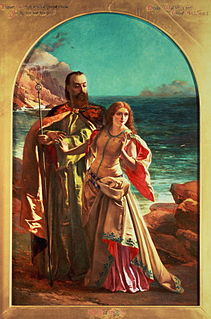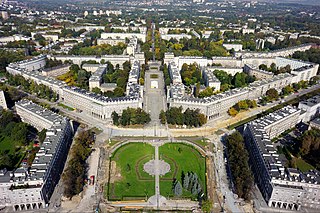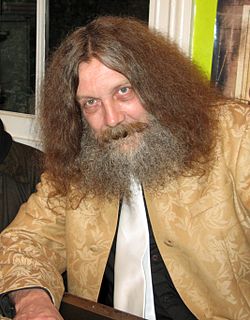The British Isles
In the Black Dossier, the alternate history of the League's United Kingdom is explored in depth. As in medieval Welsh Mythology, in approximately 1100 BC, Brutus of Troy founds the kingdom of Britain (then called Brutain) with the capital at New Troy. He is accompanied by the ageless and gender swapping Orlando, who aids Brutus in subduing Brutain's population of savage giants and their chieftain, Gogmagog. In 43 AD Britain is invaded by the Roman Empire under Claudius. In 363, the year of Merlin's birth, the Emperor Julian declares Britain a pagan nation. In 410 the Romans withdrew, and Uther Pendragon rose to power. Circa 450, his son Arturus became king, ruling until 468. Britain descended into barbarism, plagued by ogres, giants, and faeries ruled by Arthur's half-sister Morgana. The faerie remained a powerful force in Britain, so much so that King Henry VIII took the second cousin of King Oberon of the Faerie, the polydactyl Faery-blooded Anne Boleyn, as his wife. From this union sprang Queen Gloriana the First, who reigned from 1558 to 1603. Under her rule, magical and otherworldly forces became more popular in Britain. Her court held such notables as Johannes Suttle, Edward Face, Sir Jack Wilton, and Sir Basildon Bond (ancestor to Campion and James Bond). Gloriana was also the patron and associate of William Shakespeare.

Alternate history or alternative history (AH) is a genre of speculative fiction consisting of stories in which one or more historical events occur differently. These stories usually contain "what if" scenarios at crucial points in history and present outcomes other than those in the historical record. The stories are conjectural but are sometimes based on fact. Alternate history has been seen as a subgenre of literary fiction, science fiction, or historical fiction; alternate history works may use tropes from any or all of these genres. Another term occasionally used for the genre is "allohistory".

Brutus, or Brute of Troy, is a legendary descendant of the Trojan hero Aeneas, known in medieval British history as the eponymous founder and first king of Britain. This legend first appears in the Historia Brittonum, an anonymous 9th-century historical compilation to which commentary was added by Nennius, but is best known from the account given by the 12th-century chronicler Geoffrey of Monmouth in his Historia Regum Britanniae.
Trinovantum, in medieval British legend, is the name given to London in earliest times. According to Geoffrey of Monmouth's Historia Regum Britanniae (1136) it was founded by the exiled Trojan Brutus, who called it Troia Nova, which was gradually corrupted to Trinovantum. It was later rebuilt by King Lud, who named it Caer Lud after himself, and this name became corrupted to Kaer Llundain, and finally London. This legend is part of the Matter of Britain.
After her death, the puritanical magic hater King Jacob the First ascended to the throne, and proceeded to purge the faerie and other supernatural races from Britain, resulting in the faerie kingdom cutting all ties with the human world by 1616. It was also under Jacob's rule that the King Jacob Bible was compiled. Beginning in 1610, Prospero, by order of a decree written by Gloriana before her death, began to assemble the first 'League' of extraordinary individuals to defend Britain. The group disbanded when Prospero returned to the Blazing World, but was succeeded by similar groups in the 1740s, early 19th century, 1890s, early 20th century, and a failed group in the 1950s.

James VI and I was King of Scotland as James VI from 24 July 1567 and King of England and Ireland as James I from the union of the Scottish and English crowns on 24 March 1603 until his death in 1625. The kingdoms of Scotland and England were individual sovereign states, with their own parliaments, judiciaries, and laws, though both were ruled by James in personal union.

The King James Version (KJV), also known as the King James Bible (KJB) or simply the Authorized Version (AV), is an English translation of the Christian Bible for the Church of England, begun in 1604 and completed as well as published in 1611 under the sponsorship of James VI and I. The books of the King James Version include the 39 books of the Old Testament, an intertestamental section containing 14 books of the Apocrypha, and the 27 books of the New Testament. Noted for its "majesty of style", the King James Version has been described as one of the most important books in English culture and a driving force in the shaping of the English-speaking world.

Prospero is a fictional character and the protagonist of William Shakespeare's play The Tempest. Prospero is the rightful Duke of Milan, whose usurping brother, Antonio, had put him to sea on a "rotten carcass" of a boat to die, twelve years before the play begins. Prospero and Miranda had survived and found exile on a small island. He has learned sorcery from books, and uses it while on the island to protect Miranda and control the other characters.
In the late 1890s the United Kingdom was attacked by Martian invaders, who were defeated via germ warfare. The nation went on to fight in World War I and against the Germany of Adenoid Hynkel in World War II. After the war, General Sir Harold Wharton, an agent implanted by rogue factions of MI5 into the Labour Party, took power and turned the United Kingdom into a communist dictatorship. Under Wharton's Ingsoc government, cameras monitored citizens' daily activities, torture of dissidents was widespread, and a reduced and simplified version of English known as Newspeak was made the official language of the state. After Wharton's death in 1952, he was succeeded by Gerald O'Brien. O'Brien was unable to maintain power, and conceded to the Conservative Party's demands to be reinstated as an official party. Soon after he was voted out of office, and most of the Ingsoc government's programs were reversed. By 2008, Britain's Prime Minister is Tom Davis and engaged in a prolonged war in Q'umar.

The League of Extraordinary Gentlemen, Volume II is a comic book limited series written by Alan Moore and illustrated by Kevin O'Neill, published under the America's Best Comics imprint of DC Comics in the United States and under Vertigo in the United Kingdom. It is a sequel to the original volume of The League of Extraordinary Gentlemen and like its previous installment is a pastiche of various characters and events from Victorian literature; though it borrows a great number of characters and elements from various literary works of writers such as Sir Arthur Conan Doyle, Edgar Rice Burroughs, Ian Fleming, Robert Louis Stevenson and Bram Stoker, it is predominantly a retelling of The War of the Worlds by H. G. Wells.

The Great Dictator is a 1940 American political satire comedy-drama film written, directed, produced, scored by, and starring British comedian Charlie Chaplin, following the tradition of many of his other films. Having been the only Hollywood filmmaker to continue to make silent films well into the period of sound films, this was Chaplin's first true sound film.

Big Brother is a fictional character and symbol in George Orwell's novel Nineteen Eighty-Four.
The first chapter of The New Traveller's Almanac covers Britain and Ireland, describing, in addition to sites related to British and Irish folklore such as faeries, leprechauns, giants, The Mabinogion, and Arthurian legend, sites from both British and Irish literature such as:

A leprechaun is a type of fairy of the Aos Sí in Irish folklore. They are usually depicted as little bearded men, wearing a coat and hat, who partake in mischief. They are solitary creatures who spend their time making and mending shoes and have a hidden pot of gold at the end of the rainbow. If captured by a human, they often grant three wishes in exchange for their freedom. Like other Irish fairies, leprechauns may be derived from the Tuatha Dé Danann. Leprechaun-like creatures rarely appear in Irish mythology and only became prominent in later folklore.
- The Blazing World, a utopia ruled over by an Empress that can be reached via the North Pole, as described by Margaret Cavendish in the prose narrative The Description of a New World, Called the Blazing World appended to her Observations upon Experimental Philosophy .
- "The Streaming Kingdom", from Jules Supervielle's L'Enfant de la Haute Mer (1931), inhabited by the ghosts of drowned people.
- St. Brendan's Isle, from Charles Kingsley's The Water-Babies .
- Victoria, the Puritan commune from National Evils and Practical Remedies, with a Plan of a Model Town by James Silk Buckingham.
- Avondale, the phalanstery from The Child of the Phalanstery by Grant Allen, that systematically murders crippled and deformed children at birth.
- Commutaria, the idyllic shire founded by Merlin, from Elspeth Ann Macey's Awayday (1955).
- Abaton, a mythical Scottish phantom town that can only be glimpsed, from the work of Sir Thomas Bulfinch.
- Baskerville Hall
- Thomas Love Peacock's Crotchet Castle
- Yalding Towers, from E. Nesbit's The Enchanted Castle , which contains dinosaur statues that magically come to life.
- Ravenal's Tower, where the remains of Richard Ravenal from E. Nesbit's The Wouldbegoods reside.
- The White House, the residence of the Psammead from Five Children and It .
- The Wish House from Rudyard Kipling's "The Wish House" (1926).
- Cold Comfort Farm from the eponymous Stella Gibbons novel.
- The mythical Ysbaddaden Pencawr, a castle that gets further away the closer you get to it.
- Exham Priory, from Lovecraft's The Rats in the Walls (in the book, the mansion is infested by demonic rats and leads down into an ancient cavern).
- Llareggub from Dylan Thomas' Under Milk Wood .
- The floating island from The Floating Island by Richard Head (under the pseudonym "Frank Careless") (1673), inhabited by ninepins-playing Naiads.
- Camford, the setting of The Adventure of the Creeping Man , where Professor Presbury invents a serum for turning men into apes.
- A description of how the works of Lewis Carroll tie into the world: In 1861, Alice (referred to in the almanac as "Miss A.L.", a reference to Alice Liddell using the convention of withholding the names of children) disappears into a portal to a parallel universe (Wonderland) by the shores of River Thames, and washes up soaking wet several months later, after her disappearance created a media panic. Although she had been gone for months, only an afternoon had passed in Wonderland. She recounted how she'd fallen down a puzzling "hole" that she'd found in the riverbank, only to find herself in a disorienting realm where many laws of physics, even laws of logic, were entirely different from those of our world.

A utopia is an imagined community or society that possesses highly desirable or nearly perfect qualities for its citizens. The opposite of a utopia is a dystopia.

The North Pole, also known as the Geographic North Pole or Terrestrial North Pole, is defined as the point in the Northern Hemisphere where the Earth's axis of rotation meets its surface.

The Description of a New World, Called The Blazing-World, better known as The Blazing World, is a 1666 work of prose fiction by the English writer Margaret Cavendish, the Duchess of Newcastle. Feminist critic Dale Spender calls it a forerunner of science fiction. It can also be read as a utopian work.
- She gets sucked into the world again 10 years later while visiting Oxford, via a looking-glass, but returns with her body inverted so that features on her left side are now on her right side and vice versa. She has situs inversus , but does not die from it. She dies from malnutrition, because her amino acids and proteins are now isomers. A being made of isomer proteins is 'incompatible' with Earth's biosphere, which exhibits a preferential handedness. An expedition to explore the original riverbank hole was then organized by a "Dr. Bellman", accompanied by a lawyer, a banker, a butcher, a shoemaker, a bonnet-maker, a billiard-maker, and a woman named "Miss Beever" (a reference to the cast of The Hunting of the Snark ). They too disappeared, and reappeared again months later, except the baker (who vanishes in The Hunting of the Snark); their adventure log is nothing but nonsensical poetry (a reference to Phantasmagoria and other poems by Carroll, including The Hunting of the Snark). The banker suffers the same fate as Alice, although his skin has become black whilst his hair and waistcoat have become white (a reference to the line in the poem "While so great was his fright that his waistcoat turned white."). All of the survivors are institutionalized, and years later, Mina Murray visits the only living survivor, Dr. Bellman, who gives her a blank piece of paper that's supposedly a map to Snark Island (the same map which Bellman used to navigate the sea to Snark Island).
- Winton Pond, from Graham Greene's Under the Garden (1963), which contains references to both Alice books, is subsequently mentioned in passing.
- Nightmare Abbey, from Thomas Love Peacock's novel of the same name.
- Alderley Edge, as described in Alan Garner's The Weirdstone of Brisingamen .
- Diana's Grove from Bram Stoker's The Lair of the White Worm .
- The world of the Vril, from a novel by Edward Bulwer-Lytton. They are enigmatically connected to C. S. Lewis's Narnia. The word for "sin" and "evil" in their language is "Nania" [sic], (an invention of Moore, not Lytton) and the reader is directed to a (fictional) document referring to a British project to grow an apple tree. (Allegedly, this would be the apple tree that Digory planted with a seed brought from Narnia as seen in The Magician's Nephew and that in later years would provide the wood for the wardrobe that served as a portal back to Narnia in The Chronicles of Narnia's first book, The Lion, the Witch and the Wardrobe .).
- The underground Coal City from Jules Verne's The Black Indies .
- The underground "Roman State" from Joseph O'Neill's Land Under England .
- Brigadoon
- Airfowlness, the meeting-place of the crows from The Water Babies.
- Coradine, from W.H. Hudson's A Crystal Age , where Mina Murray moves to at the end of Volume Two. (Moore ignores the fact that A Crystal Age takes place in the future. Although, in the world of the League, it is entirely possible that the future of the novel could be the past as we see it, much like the way Moore treated Orwell's 1984.)
- The Glittering Plain, from William Morris' The Story of the Glittering Plain , a valley that grants enterers immortality, but making them unable to leave the valley.
- The Isle of Ransom, also from The Story of the Glittering Plain
- Greyfriars School from the Billy Bunter stories.
- Many of the sites mentioned in Arthurian lore are mentioned in the Almanac, with the legends treated as factual, historical events.
- A boarding house run by the mother of Jerry Cornelius.
- The Diogenes Club from the Sherlock Holmes stories.
- The Ministry of Love and its Room 101 from Nineteen Eighty-Four (here, the Ministry of Love building is actually the real-life MI6 headquarters at Vauxhall Cross).
- Manor Farm from Animal Farm .
- St. Merryn's Hospital from The Day of the Triffids .
- The Village from The Prisoner (The Village is stated as being located in Portmeirion, Wales, the location it was filmed at for the show).
- Hogwarts from the Harry Potter series.
- Numerous locations and areas from Crock of Gold , by James Stephens, such as the leprechaun realm of Gort Na Cloca Mora.
- The setting of Oscar Wilde's The Selfish Giant .
- Leixlip Castle, from Charles Robert Maturin's novel of the same name, haunted by faeries.
- Dublin, the streets of which are haunted by the ghost of Molly Malone, and where a red-tiled house was haunted by a disembodied hand, as described in Joseph Sheridan Le Fanu's The House by the Churchyard (most sources incorrectly give the title as The Siege of the Red House).
- The house of Mr. Mathers that is a portal to a hellish parallel-Ireland, from The Third Policeman .
- The setting of The House on the Borderland , by William Hope Hodgson, which is also a portal to a demonic world.

Jules Gabriel Verne was a French novelist, poet, and playwright.

Scientific romance is an archaic term for the genre of fiction now commonly known as science fiction. The term originated in the 1850s to describe both fiction and elements of scientific writing, but has since come to refer to the science fiction of the late nineteenth and early twentieth century, primarily that of Jules Verne, H. G. Wells and Arthur Conan Doyle. In recent years, the term has come to be applied to science fiction written in a deliberately anachronistic style, as a homage to or pastiche of the original scientific romances.

René Primevère Lesson was a French surgeon, naturalist, ornithologist, and herpetologist.

Fantastique is a French term for a literary and cinematic genre that overlaps with science fiction, horror, and fantasy.

The Voyages extraordinaires is a sequence of fifty-four novels by the French writer Jules Verne, originally published between 1863 and 1905.

The lost world is a subgenre of the fantasy or science fiction genres that involves the discovery of an unknown world out of time, place, or both. It began as a subgenre of the late-Victorian adventure romance and remains popular into the 21st century.

Claude Roy was a French poet and essayist. He was born and died in Paris.

"A Drama in Mexico" is a historical short story by Jules Verne, first published in July 1851 under the title "The First Ships of the Mexican Navy".

Anthony de la Roché, born sometime in the 17th century, was an English merchant born in London to a French Huguenot father and an English mother. During a commercial voyage between Europe and South America he was blown off course, and visited the Antarctic island of South Georgia, making the first discovery of land south of the Antarctic Convergence.

Gustave Henri Joseph Le Rouge was a French writer who embodied the evolution of modern science fiction at the beginning of the 20th century, by moving it away from the juvenile adventures of Jules Verne and incorporating real people into his stories, thus bridging the gap between Vernian and Wellsian science fiction.
Francis Lacassin was a French journalist, editor, writer, screenplay writer and essayist.
René de la Croix de Castries was a French historian and a member of the House of Castries. He was the sixteenth member elected to occupy seat 2 of the Académie française in 1972.

François Angelier is a French journalist, presenter, essayist, biographer and author of fantasy novels.

Jean-Louis Aristide Hignard, was a French composer of light opera notable as a friend of Jules Verne, also from Nantes and six years Hignard's junior, some of whose librettos and verse he set to music.

Backwards to Britain is a semi-autobiographical novel by the French writer Jules Verne, written in the fall and winter of 1859–1860 and not published until 1989.

Journey Through the Impossible is an 1882 fantasy play written by Jules Verne, with the collaboration of Adolphe d'Ennery. A stage spectacular in the féerie tradition, the play follows the adventures of a young man who, with the help of a magic potion and a varied assortment of friends and advisers, makes impossible voyages to the center of the Earth, the bottom of the sea, and a distant planet. The play is deeply influenced by Verne's own Voyages Extraordinaires series and includes characters and themes from some of his most famous novels, including Twenty Thousand Leagues Under the Sea, Journey to the Center of the Earth, and From the Earth to the Moon.

Jules Verne (1828–1905) was a French novelist, poet, and playwright. Most famous for his novel sequence, the Voyages Extraordinaires, Verne also wrote assorted short stories, plays, miscellaneous novels, essays, and poetry. His works are notable for their profound influence on science fiction and on surrealism, their innovative use of modernist literary techniques such as self-reflexivity, and their complex combination of positivist and romantic ideologies.

Masterpieces of Science Fiction is an anthology of science fiction short stories, edited by Sam Moskowitz. It was first published in hardcover by World Publishing Co. in 1966, and reprinted by Hyperion Press in 1974.
Jules Seveste, full name Désiré Henri Jules Seveste, was a French playwright and theatre manager of the first half of the 19th century.
Avital Inbar is an Israeli author, translator, journalist and restaurant critic.





























